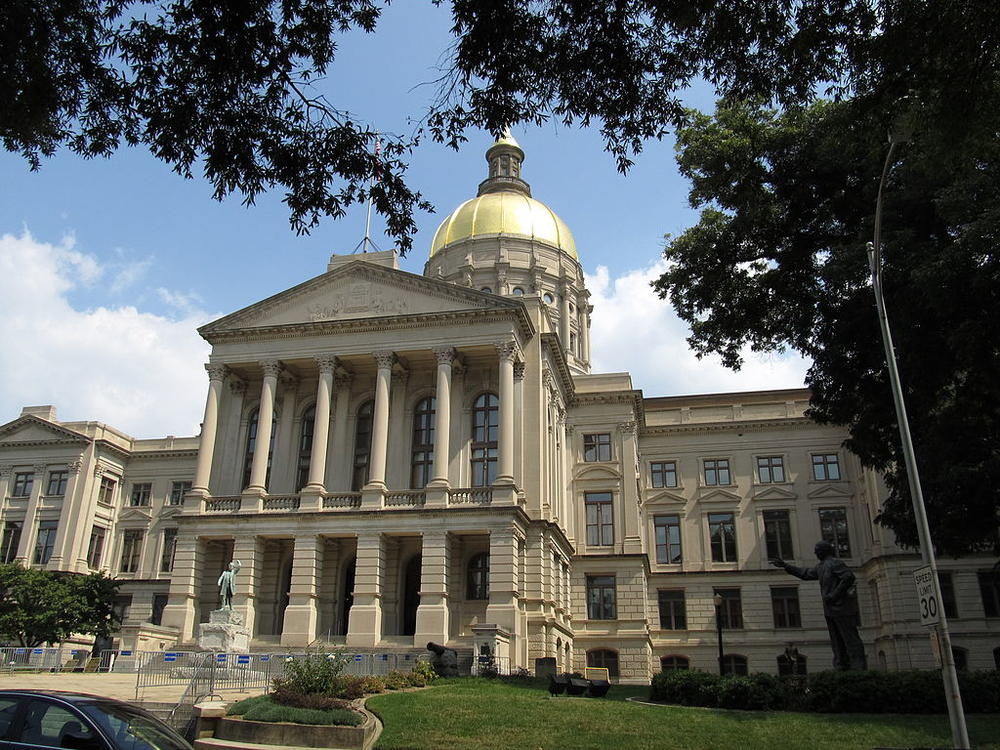Section Branding
Header Content
State Legislators Gather For Special Session, Hurricane Michael Aid
Primary Content
Lawmakers are back at the state Capitol for a special legislative session. Gov. Nathan Deal called the session to address the billions of dollars in damage caused by Hurricane Michael as it tore through southwest Georgia in October.
GPB's Rickey Bevington visited the Capitol to talk with Greg Bluestein of The Atlanta Journal-Constitution. He explained the $270 million aid package legislators will consider.GPB's Rickey Bevington sits down with Greg Bluestein of the Atlanta-Journal Constitution to talk about the special legislative session.
Rickey Bevington: $270 million, that's a lot of money, where does it come from and where does it go?
Greg Bluestein: Well, it comes from the states increased revenue growth partly from the tax reform bill that passed in Washington late last year and partly from just increased tax revenues the state has taken in. The state is not needing to dip into this $2.5 billion rainy day fund that has grown over the last eight years.
Bevington: What makes a special session special?
Bluestein: One is they're very rare in Georgia. This is the second in the last decade or so, and also the timing of this one is particularly rare because this is a lame duck special session. The election, of course, was just a week ago, so we have a lot of lawmakers here who have a swan song. This is Gov. Deal's swan song. This is Senate Pro-Tem David Shafer's swan song. This is Lt. Gov. Casey Cagle swan song. This is a lot of farewells to a lot of lawmakers who either lost last week or who didn't stand for re-election, so there's dozens of lawmakers who are saying goodbye of sorts.
Bevington: And yet there's a cost to being here; $40,000 a day is the tab to hold a special session. Was it absolutely necessary to do this?
Bluestein: Well, the state has a system where it's called the Fiscal Affairs Committee where legislative leaders and the governor can get together and move around big chunks of money. They could have done this without a special session to fund about $270 million worth of relief for Hurricane Michael victims. But lawmakers wanted to be transparent, and they wanted to have one more big meeting to show that they are responding to the hurricane and its devastation.
Bevington: Obviously, there's a sense of urgency for people in South Georgia who have lost everything but could this have waited until January.
Bluestein: There is a sense from Gov. Nathan Deal and other legislative leaders that this could not have waited until January. They wanted to show that they were quickly moving around money and funding some of the hurricane response, some of the debris removal from roads and some of the infrastructural damage that is going to set back some some communities not just years but possibly decades due to the devastating damage to farmland and agriculture.
Bevington: When there's a regular legislative session, there's a lot of surprises and antics and grandstanding. Is the focus of this legislative session limited or could anything happen in the next week?
Bluestein: The focus of this special session is very limited because the governor has very tight controls over what lawmakers can do and what they can't do. That means that there's only a few things lawmakers are expected to vote on over the next couple days. They're going to vote on the $270 million package for Hurricane Michael relief. They're also going to vote likely on tax incentives for airlines. There was a big controversy earlier this year, Lt. Gov. Cagle and other Republican leaders in the Senate blocked this jet fuel tax incentive that would have benefited Delta and other airlines. [This was] after Delta picked a fight with the NRA. Well, Gov. Deal signed an executive order after the session ended giving these airlines a short term tax break. Now, lawmakers have the chance to make that permanent.
Bevington: What are the odds of that happening?
Bluestein: I think the odds of that happening seem to be pretty high. There are some conservatives who are going to vote against it, but most Democrats and a big number of Republicans will probably also likely support it. The argument from Delta is that this will help make them more competitive. As Delta is the state's largest private employer, it will be seen as an economic development incentive.
Greg Bluestein is a political reporter with The Atlanta Journal-Constitution. This conversation has been edited for clarity and conciseness.


